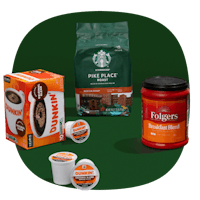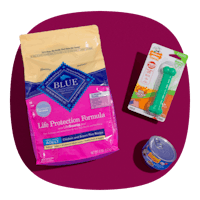Supply chain issues continue to roll out across our grocery lists — baby formula, tampons, mustard — and now a milk shortage is brewing.
Why is there a milk shortage? Which states does the milk shortage affect? What stores have milk? What are my options during a milk shortage? Here’s what you need to know:
Why is there a milk shortage? For starters, one of the Midwest’s largest milk plants shut down.

On July 9, New Borden (formerly known as Borden Dairy) permanently shut down one of the largest Chicago-area milk processing plants and stopped milk production at their De Pere, Wisconsin plant. Now, stores in Illinois and Wisconsin are reporting low milk supply.
In a statement released at the start of May, parent company NDSM Holdings didn’t say why they shut down their plants, but it may be related to some corporate acquisitions — New Borden bought the plants from Dean Foods two years ago.
Milk experts speculate the shutdowns happened to eliminate local competition and drive up milk prices, although NDSM says the impact will be pretty localized to Illinois and Wisconsin.
TIP: Although the cheese supply hasn’t been affected by the dairy shortage, it’s never a bad idea to get your hands on some cheese coupons.
You’ll have the worst time trying to find milk at Midwestern convenience stores.

Grocery stores in the Chicago area still have milk, but convenience stores like Walgreens and CVS are starting to run low.
Borden Dairy is the main milk supplier for Midwestern Walgreens stores, so they’ll be the biggest retailer affected by the plant closures. In a local Walgreens in Chicago, we found signage about the milk shortage saying “Due to milk plant closures, we are currently out of stock of one gallon and half gallons of milk.”
You can still find national brands like Dean and Organic Valley stocked at major grocery store chains like Kroger, Jewel-Osco, and Marianos.
TIP: To extend the life of your milk products, check out our how-to guide for freezing milk.
The milk shortage will likely make already-rising prices rise more.

The average milk price went from $3.53 in 2021 to $4.19 in 2022, marking a 15% price spike. Supply chain issues from staff shortages, the war in Ukraine, and rising fuel costs contribute to the high milk costs.
Now, the closure of the milk processing plants means that Midwest retailers will only have two distributors from which to choose for their milk products. Northern Illinois, Wisconsin, Michigan, Minnesota, the Dakotas, and Missouri only have two milk processors now — DFA and Prairie Farms.
With less supply on the market and less competition, Midwest shoppers should expect to see milk prices rise faster locally than in other parts of the country.
TIP: Bookmark our milk coupon page to prevent breaking the bank on milk.
Midwesterners can avoid the milk drama by subscribing to a local dairy farm.

While local milk delivery costs quite a bit more than USDA-certified organic milk’s average cost of $6.49 a gallon, there are definite benefits to avoiding the “big dairy” circuit.
Oberweis‘ subscription service serves the affected regions — and many more, reaching from Detroit to Dallas.
Milk costs about $4.50 per half-gallon and comes in reusable glass bottles. There’s a $2.99 delivery fee, plus you also need to buy a porch box for your weekly milk delivery, which is $49.99. There’s no delivery minimum. Get the porch box free and 6 months of free delivery if you use the promo code JOINTODAY at checkout.































Tell us what you think